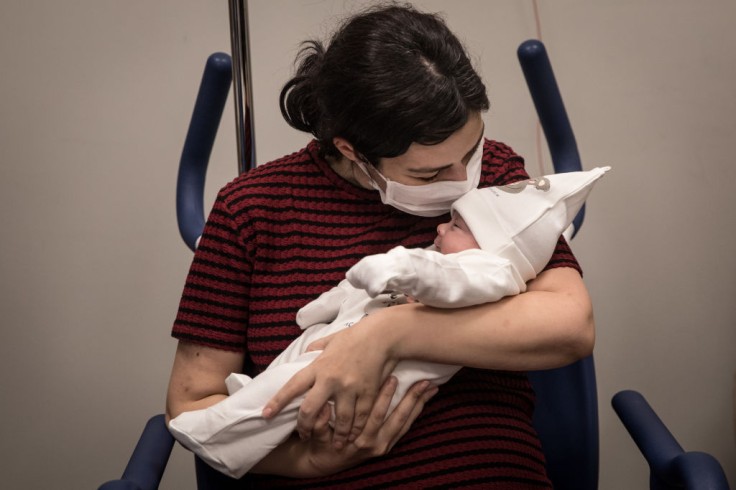
A new mother from Texas shares her experience with her diagnosis after giving birth: postpartum obsessive-compulsive disorder (OCD).
Liz Hughes, a 35-year-old resident of Houston, experienced heightened concern about her baby's health following his birth in 2020.
She constantly monitored his breathing and struggled to sleep due to her hyperawareness and sensitivity to his well-being.
Upon visiting a pediatrician, Hughes underwent a screening test for postpartum anxiety and depression, revealing that she was suffering from both, plus obsessive-compulsive disorder.
According to Hughes, this condition represents a distinct category of OCD.
One mom's journey to postpartum OCD
Liz Hughes discovered she was pregnant amidst the initial stages of the COVID-19 pandemic. She faced the uncertainty of whether her husband could be present during delivery on December 29, 2020.
According to TODAY, this led to heightened worry and stress for her.
Moreover, she discovered that she had been exposed to COVID-19 a few days before her delivery, requiring her isolation to prevent its potential spread.
During labor, Hughes experienced significant blood loss, leading to a condition known as hemorrhage.
This event was conveniently associated with postpartum depression and anxiety.
The isolation protocol in the hospital resulted in a lack of proper procedures and tests for her newborn son, including hearing tests and circumcision.
Upon leaving the hospital, the family was advised to wear masks around the baby for two weeks and undergo COVID-19 testing every three days.
This resulted in heightened vigilance from Hughes regarding her son's health. Her mental state deteriorated, and she admitted to having trouble sleeping and intrusive thoughts at her six-week follow-up appointment.
Despite the staff reassuring her that it was normal for new mothers, her thoughts worsened.
During one of her son's pediatrician visits, Hughes was asked to take a mental health survey. She was then advised to seek treatment at the Texas Children's Pavilion for Women.
A diagnosis of postpartum anxiety, depression, and OCD was made.
What is Postpartum OCD?
According to What to Expect, postpartum OCD is a type of anxiety disorder that affects some women around childbirth, causing them to experience unwanted thoughts or repetitive behaviors known as obsessions and compulsions.
Although it is a rare condition that affects fewer than 3 percent of new mothers, it is still important to recognize its symptoms and seek help.
Some new mothers may not have a full-blown case of OCD but still experience some symptoms of postpartum OCD, making it a misunderstood condition.
The exact causes of postpartum OCD are not fully understood, but experts believe that it may have a genetic component and can be learned from others in some cases.
The symptoms of postpartum OCD include obsessions, which are persistent, repetitive thoughts or mental images related to the baby that are very upsetting and not something the woman has ever experienced.
New mothers with postpartum OCD may also have compulsions, such as constantly cleaning, checking things many times, counting things, or reordering things, to reduce their fears and obsessions.
As per Postpartum Support International, they may also experience a sense of horror about the obsessions, fear of being left alone with the infant, and hypervigilance in protecting the baby.
It is estimated that 3-5 percent of new mothers and some new fathers may experience these symptoms.
The repetitive, intrusive thoughts and images can be frightening and feel like they come out of the blue.
It is highly advised for new mothers who continue to experience postpartum OCD to seek help from a healthcare professional to receive appropriate treatment and necessary support.